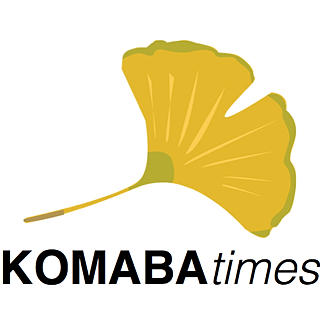Todai-Speak: A Crash Course in Campus Slang
- Komaba Times
- May 26, 2017
- 3 min read
Updated: Oct 18, 2019
By SARAH GOH

Photo caption: A page of the gyakuhyoutei. Photo by author.
Ever taken some nigai classes or bought a gyakuhyoutei before? No idea what these words mean? These are just some examples of the slang that has developed from the unique school culture here in Komaba. Don’t worry if you never heard these words before, this article will introduce you to all the frequently used slang you need to know to survive in Komaba.
Onakura 同クラ
An abbreviation of onaji kurasu (same class) and refers to your classmates. For most university students, the class unit is a matter of the past as students are typically arranged by their faculty and department, not by class units. However, the University of Tokyo is unique because students in the Junior Division are assigned classes which they take all their compulsory subjects with. Your onakura would be some of the people you first meet upon entering university and whom you’ll continue to see almost every day throughout the first year. Furthermore, significant school events, such as the Orientation Camp and May Festival, are usually organized based on the class unit so it would be best to try to get along well with your onakura.
Nigai 二外
Short for dainigaikokugo which means second foreign language (the first foreign language being English for Japanese students). All April-entry students are required to learn nigai during the first year and some examples of the languages available are French, German, Chinese and Russian. One’s choice of nigai is quite consequential as classes for the Junior Division are assigned based on nigai.
There are several amusing stereotypes that are associated with the various nigai. For example, Spanish classes are thought to be full of outgoing and fun-loving people while those in German classes apparently tend to be more serious and philosophical.
Coincidentally, nigai also happens to be a homonym for the word ‘bitter’ in Japanese. For some people, this may be strangely fitting, as many are said to have suffered bitter experiences while learning their nigai.
Gyakuhyoutei 逆評定
Translated literally as reverse evaluation and refers to a biannual student-produced compilation of students’ evaluation of teachers. In the gyakuhyoutei, students rate teachers on a 4-point scale from daibutsu (great Buddha) to oooni (great demon) and comment on quirks of the lessons. Students in the junior division must fulfill some credits for elective lessons and depending on the professor and elective chosen, the amount of work involved can vary widely. Those looking to achieve good grades with relatively little effort would scan the gyakuhyoutei to look out for courses with lenient teachers and easy exams.
If you have ever visited Komaba campus, you may have noticed a rather strange group of students in front of the school gate or cafeteria shouting incredibly fast through a megaphone. They are the student group responsible for collecting feedback on teachers and publishing the gyakuhyoutei. One can purchase a copy of the gyakuhyoutei from them at a relatively reasonable price of ¥300.
Shiketai シケタイ
An abbreviation of shiken-taisaku and refers to examination preparations. The University of Tokyo is notorious for its difficult entrance examination, so one would expect UT students to be very adept at studying for exams. In fact, UT students are so good at it, that there is a whole informal system dedicated to examination preparations. In every class, there is an appointed shikechou – someone who is responsible for coordinating the shiketai and assigning various people in class to be in charge of each subject. The person in charge of a subject would take notes for that subject and search for past year papers on behalf of the entire class. In essence, shiketai is a division of labor strategy that aims to maximize the efficiency of examination preparations.
Hopefully you are now more familiar with the slang commonly used on campus. Aside from being able to better understand the conversations of UT students, knowledge of the slang used on campus provides us an insightful glimpse into student culture in Komaba. We can see that the diligent yet strategic UT students have devised many ingenious ways to keep up with school work and still enjoy university life. Why not try using some of the words introduced above? You’ll be one step closer to speaking like a bona fide UT student.





Comments